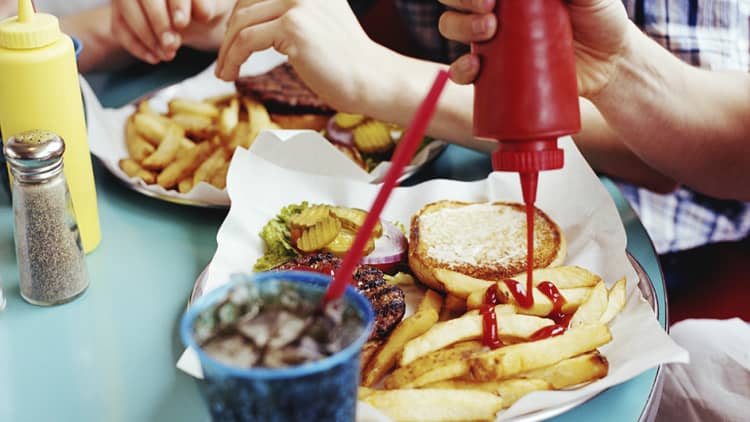
While the restaurant industry struggled with weak sales and traffic throughout 2016, it seems that December, in particular, had the worst same-store sales growth of the year.
According to Nomura-Instinet analyst Mark Kalinowski, December is slated to be the only month where the industry as a whole generated negative same-store sales growth. Kalinowski points to adverse weather as the largest factor in the sales decline, particularly during the second and third week of the month.
However, there still could be hope for restaurants' fourth-quarter sales.
"Given that November 2016 was the second-best month for U.S. chain restaurant same-store sales during 2016, the overall fourth-quarter numbers likely will look very similar to those of the (lackluster) second and third quarters," Kalinowski wrote in a research note Wednesday. "In other words, the solid November results should prevent Q4 as a whole from being a disaster, but the negative December data could hold back some chains from surpassing Street expectations for Q4's same-store sales."
The boost from November sales means that the fast-food burger segment will see same-store sales for the fourth quarter similar to that of the barely positive second and third quarter, according to Kalinowski.
Nomura projects that McDonald's U.S. same-store sales will be down 0.5 percent and Wendy's will see domestic sales up about 0.5 percent.
Brands outside of the burger, pizza and sandwich segments are expected to see positive growth for the fourth quarter, with Kalinowski expecting Yum Brands' KFC and Taco Bell to have same-store sales growth of about 3 percent.
Looking forward
Across the board in 2016, restaurants have seen a slowdown in traffic. A combination of economic uncertainty, a decline in at-home food costs and market saturation has meanwhile strained sales. Industry traffic trends turned negative in the third quarter, when visits to quick-service locations declined for the first time in five years.
However, there are some hopeful signs for 2017 — especially for quick-service chains.
Technomic analysts expect that sales at full-service restaurants will grow about 3.5 percent for 2016 and 2017. Adjusted for inflation, the real growth is estimated to be about 0.8 percent.
Casual eateries, in particular, are expected to see a slight improvement in traffic and sales in the New Year while full-service chains are slated to struggle, Technomic said.
Analysts at The NPD Group also see more consumers eating out this year, with quick-service chains expected to see traffic grow by about 1 percent, while visits to full-service chains are seen falling 2 percent.
"We believe sickly sales trends could regain health throughout 2017," Brian Bittner, an analyst with Oppenheimer, wrote in a research note Wednesday. "While we will pay close attention to gas prices (potentially up in 2017), we are cautiously optimistic as the industry laps very soft 2016 comps armed with improving consumer metrics (jobs, wages, sentiment)."

Foreign exchange rates could also be a headwind, Nomura said. The firm lowered 2016 and 2017 EPS estimates for two fast-food brands on Wednesday because of recent fluctuations.
Kalinowski shaved Yum estimates by 2 cents for the fourth quarter 2016 to an estimate of 74 cents a share, and by 4 cents for full-year 2017 to $2.76 a share.
Nomura's reduced its price target for Yum to $69 from $70. Yum shares recently traded at $63.68, up slightly.
For McDonald's, Kalinowski cut 2016 earnings per share estimates by 3 cents to $5.73, and 2017 estimates by 8 cents to $6.23.
Nomura's new target price for McDonald's $137, down from $139. Recently, McDonald's shares changed hands at $119.52, down slightly.
The lower price targets are in line with comments from other analysts who suggest restaurant stocks may have run up in the wake of the presidential election as investors bet that lower consumer tax rates and lower corporate taxes would boost restaurant earnings.
Jefferies analyst Andy Barish said he remains focused on near-term fundamentals and expects restaurants will continue to face competitive pressures throughout 2017 that "may more than offset potential economic stimulus."
Barish on Wednesday downgraded Cheesecake Factory and Dunkin' Brands to "underperform."


